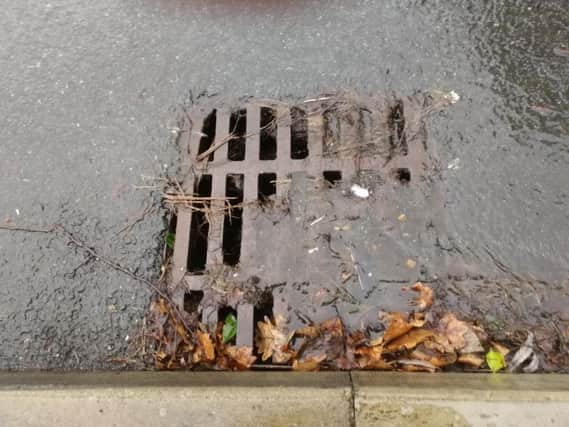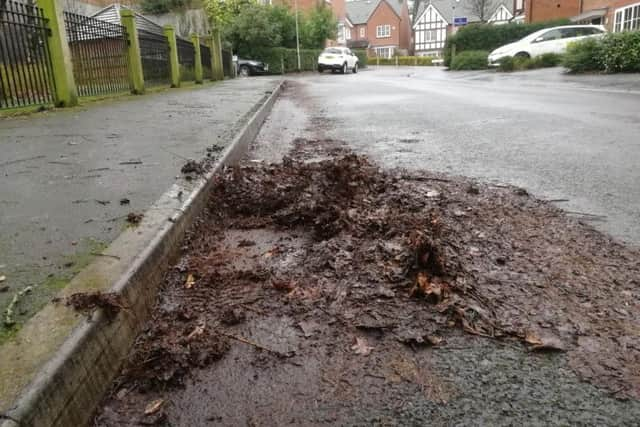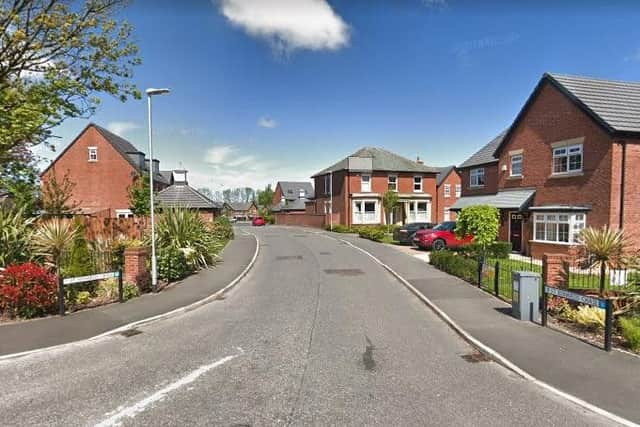Row over responsibility for residential streets leaves locals falling through the cracks


For most residential streets in Lancashire, that responsibility rests with the county council - but Lindsay discovered that her road was not one of them.
Although the cul-de-sacs of the Duxbury Manor estate in Chorley appeared to have been neatly finished when she moved in six years ago, they fell short of the standard demanded by highways bosses before they could be handed over to be maintained by the local authority.
Advertisement
Hide AdAdvertisement
Hide AdThat meant the roads remained “unadopted” - and Lancashire County Council was under no obligation to provide the kind of upkeep and repair which other residents can take for granted.


“Until the roads on the estate are adopted, we aren’t entitled to all these services that we’re paying for in our council tax,” Lindsay explains.
“In an area like this, we’re all in quite a high council tax band - and so we do pay quite a lot of money as an estate.
“But we don’t get a road sweeper, so the leaves then block the grids which causes flooding. And over time, some of the bricks [in the road surface] have also come loose, but won’t be fixed.
Advertisement
Hide AdAdvertisement
Hide Ad“The only thing we actually get is our bins emptied, so maybe we should have a lower rate of council tax until we’re adopted - I think they’d soon adopt us then,” Lindsay adds.


But while residents’ rancour may be directed at the council, a recent meeting at County Hall heard that developer reluctance was the usual roadblock to adopted status. Councillors of all political persuasions lined up to tell Lancashire County Council’s internal scrutiny committee of new roads which had been left in limbo.
Conservative committee chair, David O’Toole, told the story of a street whose residents had fought to be adopted for over a decade. And deputy leader of the Labour group, John Fillis, condemned construction companies for shirking their responsibilities.
“These developers will get away with whatever they can - without finishing off the roads, the lighting and the drainage systems,” County Cllr Fillis said.
Advertisement
Hide AdAdvertisement
Hide Ad“They hope at some point that the public purse will take over their responsibilities and they will protect their profits. It’s about time we stopped this.”
That is a sentiment shared by Chorley Council which, like all of Lancashire’s district authorities, grants planning permission for new developments - but has no say over the state of their roads. Cabinet member Paul Walmsley called for the rules to be rewritten to overcome the “little barriers” often put in the way of adoption.
“At the moment, we can’t insert a planning condition about when roads should be adopted,” he said.
“We need legislation from government about when the main access roads on a development should be ready. And it should be agreed at the planning stage exactly what the county council needs in order to be happy to adopt.”
Advertisement
Hide AdAdvertisement
Hide AdThere are no definitive figures about how many roads on completed housing estates remain unadopted. However, Lancashire County Council confirmed that, in the past three years, it has received more than 450 enquiries from developers about the possibility adopting roads on new estates. Not all of the streets will have been ready for adoption at that point.
Neil Stevens, highways development control manager at the authority, said: "It benefits everyone if housebuilders work closely with the county council and utility companies from the planning application stage onwards, so we can agree the layout of new housing estates, construction standard of roads, street lighting, drainage and utilities. This approach is the best way of ensuring roads and other infrastructure can be considered for adoption at an early stage once the development is finished.
"In many cases, we have a good working relationship with developers which means that this process works well, however it is the developer's responsibility to ensure that roads and utilities are built to the required standard to allow them to be adopted.
"Where problems occur it is often due to a developer not having consulted the county council or utility companies until the development is completed, at which stage there may be issues which need to be resolved by the developer before the highway infrastructure and utilities can be adopted.
Advertisement
Hide AdAdvertisement
Hide Ad"Developers have a duty to their customers to construct infrastructure to the proper standard, and the county council has a responsibility to ensure it does not become liable for resolving potentially very costly issues by ensuring roads meet the proper standard before adopting and maintaining them using public funds."
On the Duxbury Manor estate, the situation was further complicated by the fact that the housebuilder, Arley Homes North West, subsequently went into administration. At first glance, the roads still appear remarkably well kept - but the cracks are starting to show.
And as the rain begins to fall, the leaves heaped in the gutter and compacted over grids become a more pressing problem.
Residents have recently been told that a bond from the defunct developer will now be used to carry out the remedial work required before the estate can secure adopted status.
Advertisement
Hide AdAdvertisement
Hide Ad“We’ve been here six years now - and when you think about all the council tax we have contributed in that time,” Lindsay Hill muses. “How long does it take?”
ROAD TO NOWHERE?
Householders on St. Edward’s Chase in Preston could have been forgiven for thinking they had hit a dead end in their quest for their road to be adopted.
But after four years and a letter to the Managing Director of one of Britain’s biggest housebuilders, they are finally looking forward to receiving the same highway services as most other residents in Lancashire.
Liberal Democrat campaigner, Daniel Gregg, has helped get the wheels turning - but it has not been a smooth ride.
Advertisement
Hide AdAdvertisement
Hide Ad"I am appalled at how long it has taken Persimmon Homes to complete the process to have the sewers and roads adopted,” he said.
“We will continue to put pressure on house builders to have roads and sewers adopted within a reasonable time frame, once developments have been completed."
A spokesperson for Persimmon Homes Lancashire said: “The development had all the roads and sewers completed to adoption standard before the construction team left the site.
“Subsequently, [we] remained wholly responsible for any issues reported by the residents and have dealt with [them] as soon as possible.
Advertisement
Hide AdAdvertisement
Hide Ad“The sewers could not be formally adopted because of administrative issues with the utilities company. We have now agreed the remedial works...and once the sewers have been adopted, the roads can also be adopted by Lancashire County Council highways.
"Despite the delays in adoption, our customers have benefitted from fully complete, good standard facilities, maintained by Persimmon Homes."
THE RULES OF THE ROAD
Highways authorities like Lancashire County Council are not responsible for new roads until they are formally adopted. Before then, highway maintenance on new developments is the responsibility of residents.
A local authority may carry out repairs to an unadopted road if a defect presents a danger to traffic - but it can then bill householders for any work done.
Advertisement
Hide AdAdvertisement
Hide AdThere are several routes by which streets can be adopted. On new estates, the most common option is by agreement with the developer to bring them up to an agreed standard - they would then become “highways maintainable at public expense”.
There is also the possibility for householders - those with a “frontage” on the road - to request adoption. However, that would still require the road to be “made up” to the necessary standard, with the cost split between those with a property fronting the street. More than half of the property owners - or those with properties accounting for more than half the length of frontages - would have to request such a move.
Source: House of Commons Library, April 2018
TAKE ON ME?
The organisation which represents developers says they are keen to avoid any delay in passing on responsibility for newly-built roads to the relevant local council.
“It is not in a typical housebuilder's business model to retain ownership of highways and there are set processes in place to transfer these assets to the local authority upon completion to an agreed standard,” Steve Turner from the National Housebuilders’ Association said.
Advertisement
Hide AdAdvertisement
Hide Ad“Unfortunately, we are increasingly seeing disputes between highways authorities and planning departments about specifications and subsequent delays in local authorities adopting new roads, meaning builders are left to own and maintain them for longer. The resolution typically involves the authority demanding more cash from builders.
“Delays, indeterminable costs and uncertainty are constant causes of frustration for smaller house-building companies in particular. Having the highways still within the grasp of the developer ties up bond arrangements and hinders our investment in new opportunities.”
IS YOUR ROAD ADOPTED?
This Lancashire County Council map has details of the status of roads in the region - http://www.mario.lancashire.gov.uk/agsmario/